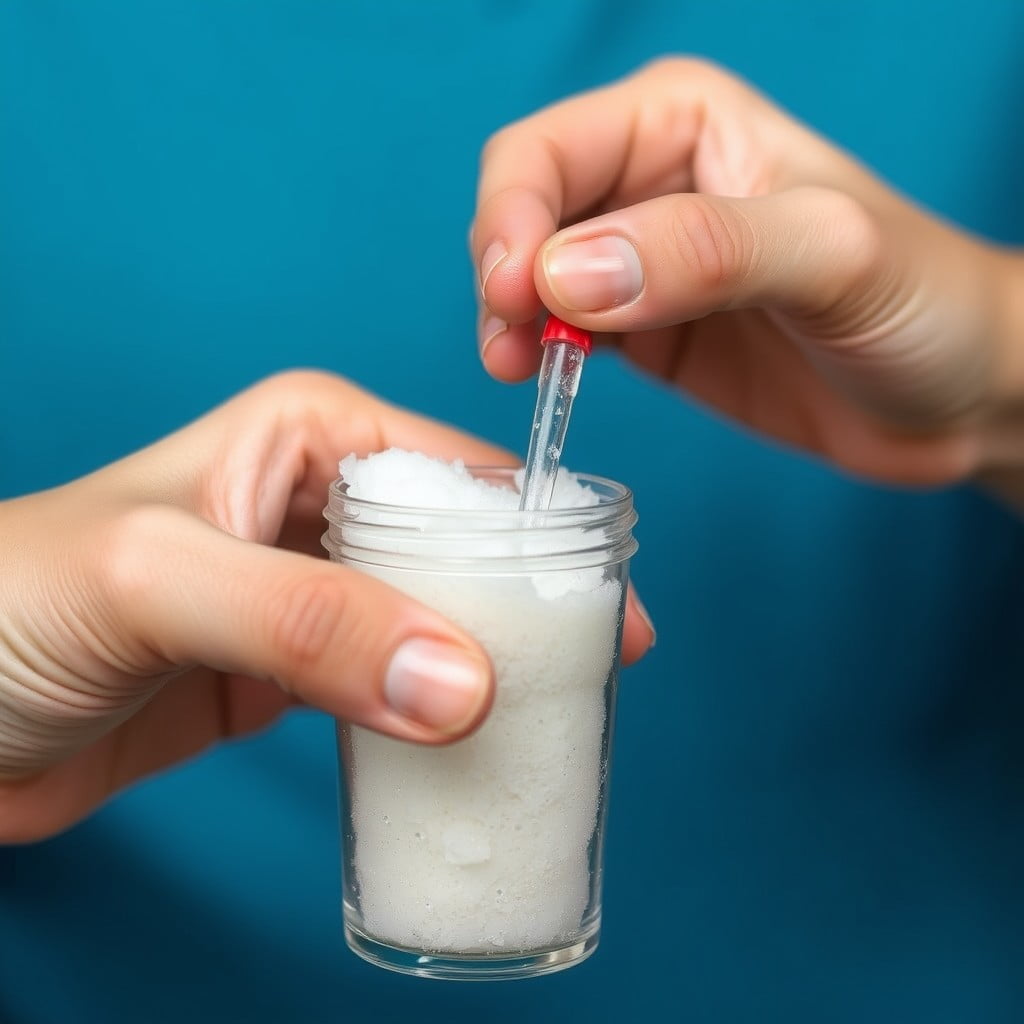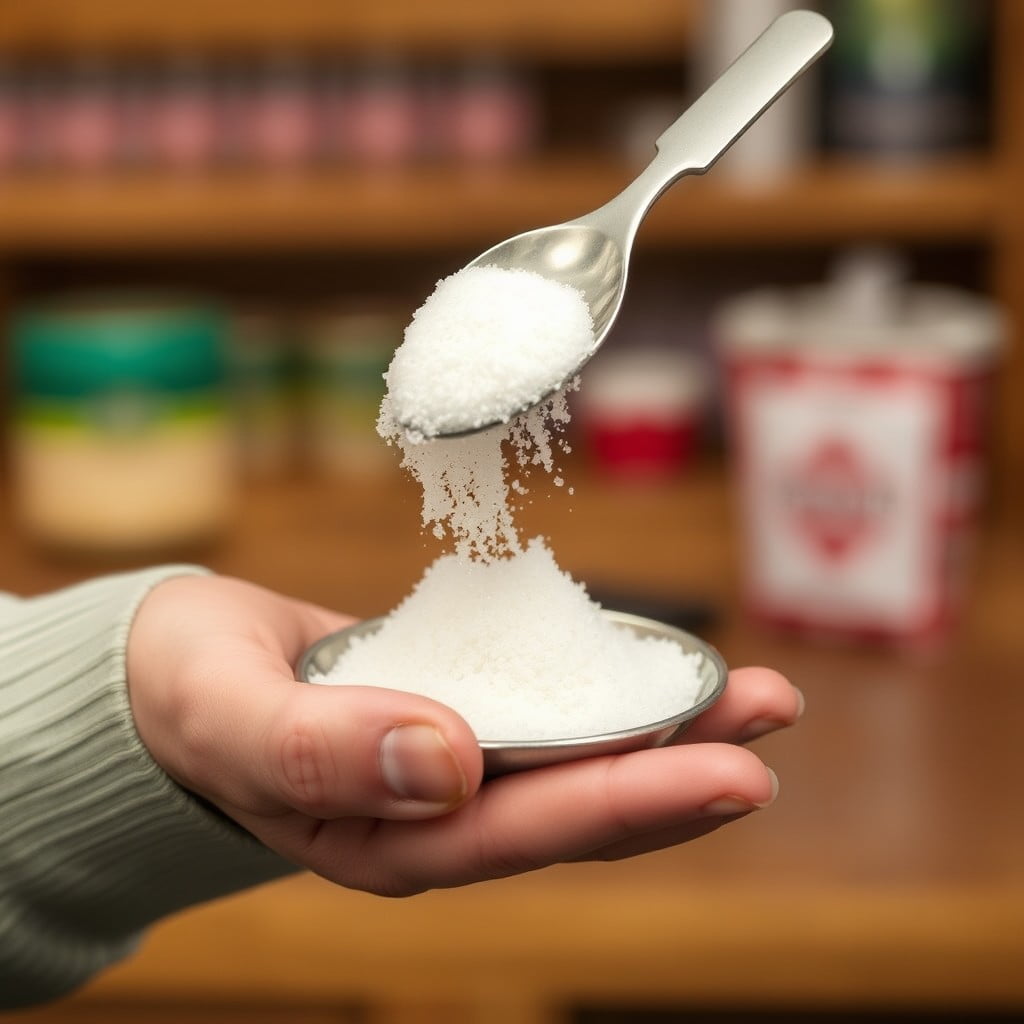Blood sugar, also called blood glucose, is the amount of sugar (glucose) in your blood. Glucose comes from the food you eat, especially carbohydrates like bread, pasta, and fruit, and it is the main source of energy for your body’s cells.
After you eat, your body breaks down the carbohydrates into glucose, which enters your bloodstream. Your blood carries glucose to your cells, which use it for energy. To help glucose get into your cells, your body needs a hormone called insulin, produced by the pancreas.
If your blood sugar is too high or too low, it can cause health problems. For example, consistently high blood sugar (hyperglycemia) can lead to diabetes, while low blood sugar (hypoglycemia) can make you feel weak, shaky, or dizzy.
If you think you might be suffering from high blood sugar take a look at this list of symptoms and see if they fit you:
- Frequent urination (polyuria): High blood sugar causes your kidneys to work harder to filter and remove the excess glucose, leading to frequent trips to the bathroom.
- Increased thirst (polydipsia): As your body loses more fluids through urination, you may feel very thirsty and drink more water.
- Dry mouth: Due to fluid loss and dehydration, you may experience a dry or sticky feeling in your mouth.
- Fatigue: High blood sugar can make you feel unusually tired and lacking energy.
- Blurred vision: Excess sugar in the blood can affect your eyes and cause temporary blurred vision.
- Headaches: High blood sugar can trigger headaches or make existing ones worse.
- Unexplained weight loss: If your body can’t properly use glucose for energy, it may start burning fat and muscle for fuel, causing unintentional weight loss.
- Slow-healing sores or cuts: High blood sugar impairs circulation and affects your body’s ability to heal wounds.
- Frequent infections: Hyperglycemia can weaken your immune system, leading to recurrent infections, particularly in the skin, gums, and urinary tract.
- Nausea and vomiting: In cases of very high blood sugar, you might experience nausea, vomiting, or abdominal discomfort, which can indicate a serious condition like diabetic ketoacidosis (DKA).
So, too high or too low blood sugar is something to take seriously. If these symptoms persist or worsen, it’s important to consult a healthcare professional.
If you’re struggling with high blood sugar, GlucoBerry™, a doctor-formulated supplement based on Ivy League research, may help. Click here to learn how it can support your blood sugar naturally.
Don’t let high blood sugar control your life. If you’ve experienced any of these symptoms, it’s time to take action. GlucoBerry™ is backed by real-world results to help manage your blood sugar, so you can enjoy peace of mind and freedom. Click here to discover more.
But you might wonder what can be the reason for high blood sugar? Here is a list of 10 things that can lead to high blood sugar:
- Lack of insulin or improper insulin function: For people with diabetes, either their body doesn’t produce enough insulin (Type 1) or their cells resist insulin (Type 2), leading to elevated blood sugar levels.
- Excessive carbohydrate intake: Eating large amounts of carbohydrates, especially refined sugars and processed foods, can cause blood sugar levels to spike.
- Physical inactivity: Lack of exercise can decrease the body’s sensitivity to insulin, making it harder to regulate blood sugar levels.
- Stress: Stress hormones like cortisol can increase blood sugar by triggering the liver to release more glucose.
- Illness or infection: When the body fights off illness or infection, hormones are released that can raise blood sugar levels.
- Skipping or incorrect dosage of diabetes medication: Missing doses or taking the wrong amount of insulin or other medications can lead to poor blood sugar control.
- Hormonal changes: Hormonal fluctuations, such as during pregnancy or menopause, can affect insulin sensitivity and lead to higher blood sugar levels.
- Dehydration: Lack of sufficient fluids can lead to more concentrated blood sugar levels in the bloodstream.
- Certain medications: Some medications, such as steroids, certain antidepressants, and diuretics, can raise blood sugar levels.
- Dawn phenomenon: This refers to a natural rise in blood sugar levels in the early morning hours due to hormonal changes that increase glucose production by the liver.
Managing these factors, especially for people with diabetes, is essential for maintaining stable blood sugar levels.

So, if you are suffering from high blood sugar you really need to do something about it. One of the things proven by Ivy League research and dozens of clinical studies is, when you clear away clogs in your Blood Sugar Drain, the result is: Fewer spikes, Lower fasting blood sugar, Freedom to eat tasty food, Less worry about future health.
High blood sugar, especially when unmanaged over time, can lead to serious diseases. Here are five of the worst diseases that can result from chronically high blood sugar:
1. Cardiovascular Disease
- High blood sugar can damage blood vessels and increase the risk of heart disease, stroke, and other circulatory issues. People with diabetes are at a higher risk of developing these conditions.
2. Diabetic Neuropathy
- Nerve damage (neuropathy) caused by long-term high blood sugar can lead to pain, tingling, numbness, or loss of feeling, especially in the hands and feet. In severe cases, this can result in infections or even amputations.
3. Diabetic Nephropathy (Kidney Disease)
- High blood sugar can damage the kidneys over time, leading to chronic kidney disease or kidney failure. This may require dialysis or a kidney transplant if untreated.
4. Diabetic Retinopathy
- High blood sugar can damage the tiny blood vessels in the eyes, leading to vision problems and, in advanced stages, blindness. Diabetic retinopathy is a leading cause of vision loss in adults.
5. Peripheral Artery Disease (PAD)
- High blood sugar can lead to narrowed or blocked blood vessels in the limbs (especially legs), reducing circulation. This condition can cause pain, sores, or ulcers and may lead to amputations if severe.
These diseases are often preventable or manageable with proper blood sugar control, regular medical care, and lifestyle changes.
If you feel like trying out some lifestyle changes before using any medication there are many things you can do. Most of them involve you having to give up something you are used to and really like. But try some of these steps:
1. Healthy Diet Choices
- Focus on complex carbohydrates: Replace refined sugars and processed foods with whole grains, vegetables, fruits, and legumes. These foods digest more slowly and help prevent blood sugar spikes.
- Increase fiber intake: High-fiber foods (like vegetables, fruits, whole grains, and legumes) slow the absorption of sugar and help regulate blood glucose levels.
- Portion control and balanced meals: Eating smaller, well-balanced meals with lean protein and healthy fats helps stabilize blood sugar.

2. Regular Physical Activity
- Exercise daily: Engaging in at least 30 minutes of moderate exercise (like walking, swimming, or cycling) most days of the week helps lower blood sugar and improves insulin sensitivity.
- Include strength training: Resistance exercises (like weight lifting or bodyweight exercises) can further enhance insulin function and help with long-term blood sugar control.
3. Weight Management
- Lose excess weight: Shedding extra pounds, especially around the belly, can improve insulin sensitivity and lower blood sugar. Even a small weight loss (5-10% of body weight) can have a significant impact on blood sugar control.
These three changes, when consistently practiced, are highly effective in lowering blood sugar and preventing complications related to hyperglycemia.
If you feel like trying something a lot easier for a start you can try GlucoBerry™, it is a brand-new, doctor-formulated blood sugar supplement formulated using Ivy League research, and backed by real-world results.
A study from Johns Hopkins University found something surprising about how your body regulates blood sugar.
Focusing on insulin is NOT the one-and-only, magical solution to supporting healthy blood sugar.
When you have excess sugar in your bloodstream, it’s insulin’s job to taxi that sugar away. But when insulin “drops off” that excess sugar, it’s still inside your body.
In fact, it’s in your kidneys.
There’s a Blood Sugar Drain in your kidneys that receives excess sugar from your insulin and then flushes it into your urine.
This study from Johns Hopkins University discovered that your Blood Sugar Drain must be running smoothly to maintain balanced blood sugar.
But 50% of Americans have too much of a sticky gray protein that clogs up their Blood Sugar Drain.
When insulin delivers excess sugar to your Blood Sugar Drain, this clog of gray protein stops that sugar from draining away. When excess sugar can’t drain away, it ends up right back in your bloodstream.
Here’s what this new discovery means for everyday folks who are concerned about their blood sugar:
If you want to support healthy blood sugar… You MUST keep your Blood Sugar Drain flowing smoothly.
But here’s the good news:
New scientific studies have now identified a unique red berry that supports against clogs in your Blood Sugar Drain.
Top Harvard professors are calling this berry’s method of maintaining blood sugar a “promising new therapy.”
With this ground-breaking research in hand, GlucoBerry™ was created.
GlucoBerry™’s unique and proprietary formula is the first in the world to use maqui berry and four supporting nutrients to help keep your Blood Sugar Drain healthy.
And with a healthy Blood Sugar Drain, you’re supporting healthy blood sugar levels.

